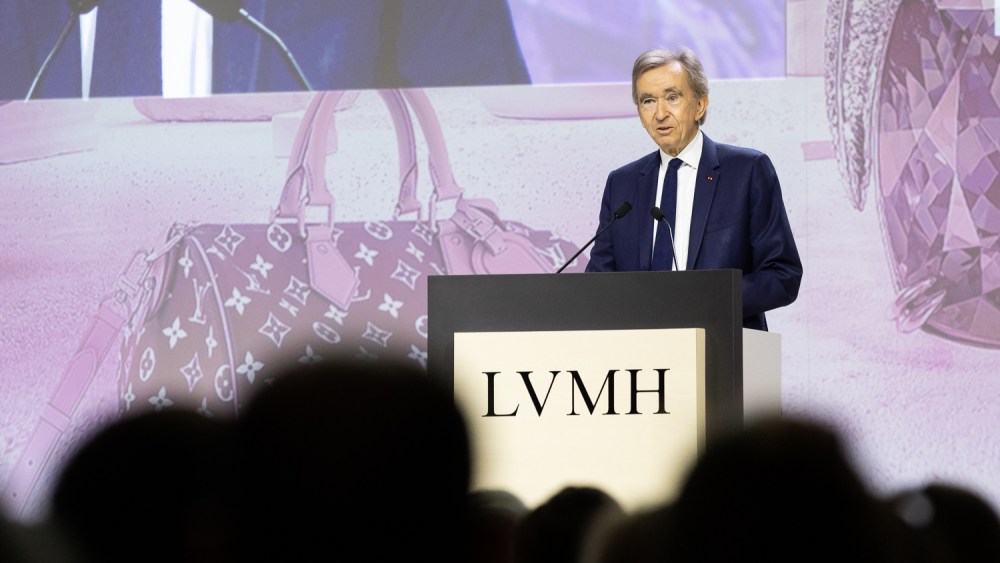LVMH (Moët Hennessy Louis Vuitton) has been navigating a challenging yet evolving landscape in the beauty sector, recently reporting a moderate uptick in growth. The luxury giant credits this slight increase to its ongoing commitment to innovation and a carefully curated retail strategy. However, the lingering effects of an economic slowdown in China have cast a shadow over the company’s performance. For the fifth consecutive year, the company has seen its beauty business’s reliance on the Asian market, excluding Japan, decline significantly, dropping from 45% in 2020 to 30% last year. This shift underscores the importance of strategic adaptation in response to market fluctuations.
Compounding this scenario, LVMH’s profit margins in its beauty division dipped slightly, reflecting broader industry challenges. Margins fell from 8.6% in 2022 to 8% in the last reporting period, signaling a need for the company to not only maintain its innovative edge but also manage costs effectively. Nevertheless, the luxury brand’s flagship label, Dior, emerged as a vital asset, demonstrating promise through product launches and bold marketing. Its men’s fragrance, Sauvage, benefitted notably from the introduction of Sauvage Eau Forte, while the women’s classic, J’adore, was rejuvenated by a fresh advertising campaign featuring the globally recognized Rihanna, effectively replacing longtime ambassador Charlize Theron.
Dior’s revitalization strategies extended beyond just celebrity alliances. The prestigious brand also introduced new lines, such as the Esprits de Parfum range within its La Collection Privée Christian Dior, amplifying its presence in the high-end scent market. Additionally, its makeup initiatives, particularly with the Forever range, resonated with consumers, while its premium skin care segment gained traction, especially in Asia. By bolstering its retail presence with innovative store concepts—including the opening of a beauty-only location in New York’s trendy SoHo neighborhood—Dior is making significant strides to enhance its visibility and reach across diverse consumer bases.
Other brands under the LVMH umbrella also showcased robust performance, contributing to the group’s overall health. Guerlain, for instance, saw an increase in fragrance sales led by high-end offerings like L’Art & La Matière, while new additions to the Aqua Allegoria collection captured consumer interest. The makeup sector also thrived, with the launch of new products such as the revitalized Rouge G and the Bee Glow Oil for lips, which notably sold out in just a month. Givenchy, too, made waves in both fragrance and makeup, particularly with the successful relaunch of its Prisme Libre powder, effectively strengthening its market share in Europe.
Leadership within LVMH Fragrance Brands has undergone some interesting shifts as well, hinting at the group’s dedication to fostering brand innovation and market expansion. Romain Spitzer has had his role broadened to include responsibilities across new ventures that would support innovation within the wider LVMH family. In another notable move, Stéphanie Medioni, overseeing a diverse portfolio of brands including Acqua di Parma and Fenty Beauty, has gained additional functions that span various consumer insights, media strategies, and omnichannel retail operations. This structural evolution reflects the company’s ambition to stay at the forefront of an increasingly dynamic luxury market.
Fenty Beauty’s launch in China and the introduction of a hair care line, Fenty Hair, represent a key aspect of LVMH’s strategy to tap into emerging markets and the fast-growing demand for beauty products abroad. Similarly, Fendi celebrated its centenary by unveiling its first fragrance collection in over ten years, complete with eco-friendly, refillable bottles, emphasizing sustainability within the luxury sector. As the beauty industry undergoes continuous change, the adaptability and innovative spirit displayed by LVMH and its diverse brands illustrate a broader narrative of resilience and growth in the face of economic challenges. Through targeted marketing, product innovation, and strategic leadership, LVMH is carving a compelling path forward, illustrating its commitment not just to luxury but to sustainability and market responsiveness in an ever-shifting landscape.

